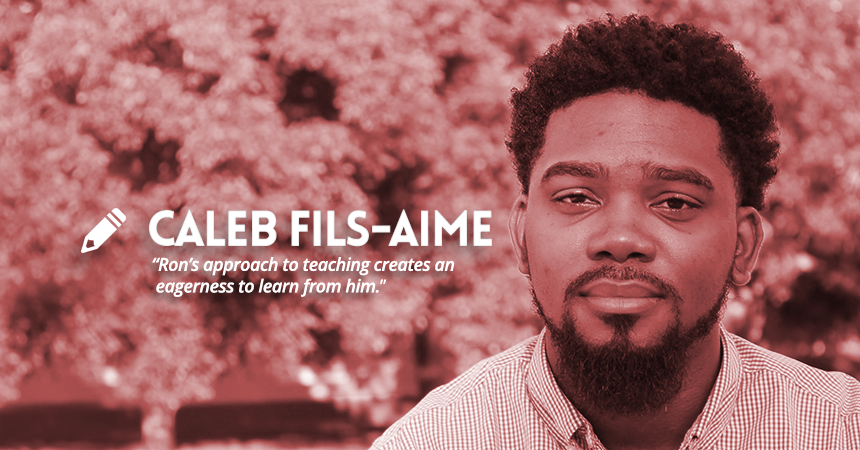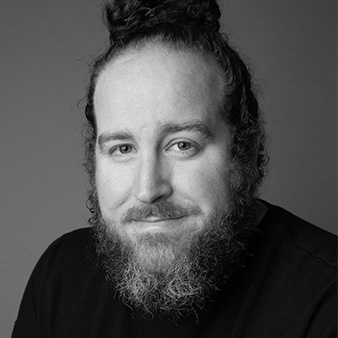
5 Writing Tips I Learned at Miami Ad School
Promising student copywriter Caleb Fils-Aime, recounts the important lessons he learned from Miami Ad School Co-Founder, Ron Seichrist.

I guess I should’ve been pretty intimidated when I took my first writing class at Miami Ad School. My teacher was an art director, graphic designer, copywriter and creative director. He’s a prolific writer in his own right and a captivating storyteller. Not to mention, he happened to be the owner and founder of the school. Ron Seichrist. That alone would’ve been enough for me to be as nervous as Littlefinger on trial for murder and treason (word to Game of Thrones). But Ron is a delightful man. His approach to teaching creates an eagerness to learn from him.
Ron oozed intellect but was never braggadocious about what he knew. In fact, the smartest thing about him, in my opinion, is how simple his lessons were. The simplest lessons were the greatest lessons. And these words, I keep in my writing toolkit. But I’m willing to share.
- Keep it Short Sweet
Have you ever read a run-on sentence where it seems like the writer is trying to make multiple points about a particular subject that they experienced before and by the end of the sentence you have no idea what the point of the sentence was, only to find out that you are confused about the sentence which looks more like a paragraph so you have to re-read it and break down the sentence structure so you can somewhat understand what the writer means to say as opposed to what they actually wrote? Yea. That’s not necessary. Keep your sentences short. Your writing becomes clearer when you do. - Write Like You Talk
Most writers attempt to sound “smart” by using big SAT words that they pulled out of their thesaurus. No need to show off the big words you know. You don’t want your reader thumbing through a dictionary every third word they read. The smartest writing is writing that can be clearly understood. - Don’t Waste a Word by Using “It”
There are opportunities that come up while you’re writing where you have a chance to really be great. To really flex your wordsmithing talents and use a word that is profound, or simply be more descriptive. In those instances, avoid using the word “it”. “It” is a curse word in Ron’s class. Try not to get your mouth washed out with soap. - Get Right to the Good Stuff
Most writers have the tendency to set up plots and storylines in their writing. But you know what? That can be uber boring. Imagine having to lick a Tootsie Pop 1,000 times until you got to that chocolatey center. That’s tedious work. Your reader wants that chocolatey center now. Give them your best stuff early. They are sure to keep reading. - Speak to YOUR Audience
There’s nothing worse than reading an article intended for you that sounds like it’s NOT intended for you. Well, a few things are worse. Like King Joffrey with that smug look on his face passing the sentence that beheads Ned Stark, but I digress. You want your readers to relate to what you have to say. Speak in their language with tones and vernacular that resonate with them. I.e., if you’re writing a children’s book for five-year-olds, it’s a good idea to limit the vocabulary and concept to an elementary understanding.
These tips aren’t hard and fast rules in the writing blueprint but they are very valuable in making your writing better. They’ve surely helped me develop as a copywriter.
You can see some of Caleb’s work at his portfolio site.






